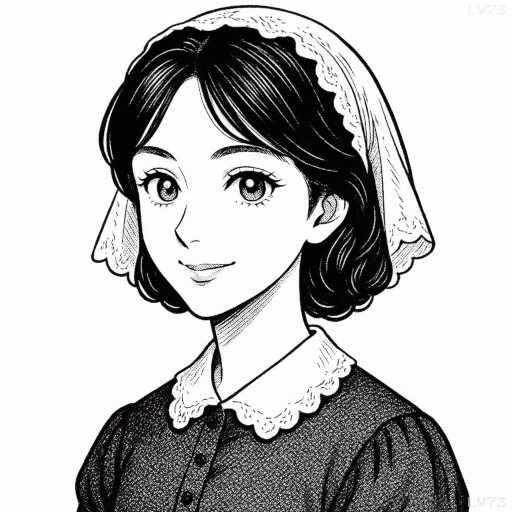“I have learned to know God. I have recast my social belief… All my admirers are married; most of my friends are dead; and I stand with all the world before me, where to choose a path to make in it.”

- May 12, 1820 – August 13, 1910
- Born in the Grand Duchy of Tuscany (Italy)
- Nurse, statistician
table of contents
Quote
“I have learned to know God. I have recast my social belief… All my admirers are married; most of my friends are dead; and I stand with all the world before me, where to choose a path to make in it.”
Explanation
In this quote, Florence Nightingale reflects on the evolution of her personal beliefs and life choices, especially as she navigated the complexities of faith, friendship, and isolation. She mentions that she has learned to know God, suggesting a deepening of her spiritual understanding, which may have influenced both her professional mission and personal convictions. Her assertion that she has recast her social belief likely refers to a shift in her values or worldview, as she had long been a social reformer, advocating for better healthcare and the improvement of public health. This transformation in her personal philosophy also speaks to the personal sacrifices she made in pursuing her work, as she reflects on how most of her friends are now deceased and how the people who once admired her are now married, perhaps leading to feelings of loneliness or separation from her earlier life.
The line about standing with “all the world before me” suggests a sense of possibility and uncertainty, as Nightingale, who had dedicated much of her life to nursing and healthcare reform, faces an evolving future. By acknowledging that she must “choose a path to make in it,” Nightingale hints at the personal crossroads she encountered later in life. Despite her immense success and influence, she was never fully able to reconcile the pressures of her social role with her private desires. Her decision to remain unmarried and dedicate herself entirely to her work left her isolated in some ways, despite her monumental impact on society.
Nightingale’s words offer a poignant look into the complex inner life of a woman who reshaped an entire profession but struggled with feelings of isolation and the consequences of personal sacrifice. Her experience highlights the tension between duty and personal fulfillment, a theme that remains relevant today. Many individuals in highly demanding careers or service-oriented professions often face similar challenges, balancing personal desires with a sense of responsibility. Nightingale’s personal reflections remind us of the difficult choices that often come with pursuing a legacy, and the loneliness that can sometimes accompany a life devoted to public service.
Would you like to share your impressions or related stories about this quote in the comments section?

